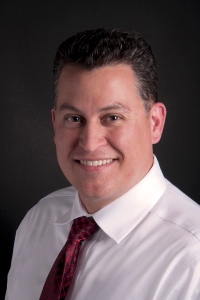Hello, Admissions Department at Georgia Regents University. My name is Robert. I am 41. I have a MS in Executive Leadership and Organizational Change from an AACSB accredited school with a 3.9 GPA. I have a BS in Cell Biology, Microbiology, and a minor in Biochemistry from the University of GA. I am the Chief Information Officer at Armstrong Atlantic State University, and I’ve held progressive leadership roles at Miami University and the University of Georgia. I’m also a volunteer firefighter to help serve my community.
By some definitions, I’d be considered successful and a safe bet.
After graduating high school with honors, I received an academic scholarship to the University of GA where I pursued a degree in science because I loved critical thinking, problem solving, and diagnosing, especially when focused on applied or human systems. I thought I was going to be a surgeon. However, my Dad had thyroid cancer (he recovered) in the first part of my college career, and I dropped out of school to help run and work in the family electrical and general contracting business. I didn’t handle the transition well, and I have the grades to show for it. In a tough situation, I made some bad choices and mistakes. I own that. It took me some 8 years to finish, but through tenacity and strong encouragement from my parents I graduated with some of the toughest majors at UGA. My 400 level science course GPA is 3.2.
I left lab science for the IT world, and became a support person, then a manager, then a director, then a senior director, then an Asst. VP, and now a CIO. Along the way I thought I needed to get an MBA, but never got around to it. (The thought of financial accounting classes made me nauseous, so I kept avoiding it.) Finally, I figured out that my real challenges were related to helping people navigate change. My world has major upheavals every 3-5 years, and, thus having skills in leadership development, communication, conflict, negotiation, and organizational change would be helpful. I found the ELOC program at NKU to be vitally helpful and useful. I am a better husband, father, son, and employee for going through the curriculum.
Over my career, I’ve seen disruptive forces at play in higher education, and I have more recently observed those same forces at play in healthcare. Dramatically rising costs; expensive technology promises that have great potential but too many times have unrealized value; people vested in maintaining the status quo regardless of outside pressure; unequal access to services; populations in need; and increasing levels of public scrutiny are just a few similarities.
A practical example is that a large number of Georgians live in a place that is served by a rural hospital where it is tough to attract and retain medical specialist. Georgia has the dubious distinction of being in the “stroke belt” (stroke mortality rates 10% above national rate). There is something called a TPA protocol that dramatically improves the outcome of patients suffering from a stroke. The kicker is that it must be administered within a three hour window of the stroke or it can cause more damage. There are companies (e.g., REACH) who can provide the experts through telemedicine. I heard one doc at an economic development seminar talking about providing this care to a patient. He was there to talk about the rural telemedicine and business model, but all I heard was that they wasted about 45 minutes faxing medical records back and forth to ensure no medical contraindications before actual treatment could begin. This particular patient had a successful outcome, but 13.5% of the effective treatment window was taken up with (important) administrivia. That’s one of the things the HITECH Act of 2009 is supposed to help address, but we are still in the implementation phases. We have the technical capabilities to increase successful healthcare outcomes–from diagnosis to treatment–, and those systems, infrastructure, and practices are what I’d like to be a part of creating.
As a part of creating those solutions, I thought I’d get to know more about the problem by getting a Masters in Public Health. Even better, I thought I would take advantage of the University System of Georgia tuition assistance program by utilizing the web program offered by Georgia Regents University (formerly ‘Georgia Health Sciences University,’ but it will always be known to me as the ‘Medical College of Georgia’).
Fantastic! In the course of one degree program I’m about to fuse together my science background, my higher ed experience, and my organizational change experience so that I can advance my career and better serve society.
But first, I have to remember geometry and the quadratic formula. That’s right folks, I have to take the GRE. Never mind that my last class in geometry was in my freshman year of high school back in 1986. Never mind that I’ve never taken math courses on a computer. Yes, I do math in my job, but it’s is in Excel and it has nothing to do with the sort of math that is on these tests.
To my own children and anyone else out there who point to this as a reason for not taking or not studying for their own math classes: It is important to go through these classes and do well. It teaches problem solving and gives you choices and avenues to pursue. Because of these classes, I had the opportunity to pursue a career in engineering or physics, where I would no doubt still be using these concepts. Except in matters that compromise personal integrity, don’t ever shut doors until you absolutely have to. But twenty-seven years later, you have my permission to forget information that hasn’t been meaningful to you.
Based on JD House’s (1998) research, the GRE under predicts achievement for older students. There are studies that prove that for older students the verbal stays about the same, but the math portions decline (Clark 1984).
“According to data from the Educational Testing Service (ETS), the test’s manufacturer, the GRE is a weak predictor of first year graduate school grades (Fairtest.org, 2007). A study conducted by Morrison, T. & Morrison, M. (1995) found an even weaker relationship between test scores and grades — GRE scores predicted a mere 6 percent of the variation in grades.” (Hale 2010)
To be fair, one study also pointed out that older GRE students are less likely to graduate from traditional Masters/Doctoral program (Barry & Mathies 2011). There are other studies that show that GRE, etc are great predictors of first year grades; however, it seemed as if those were more traditional PhD type programs in psychology, etc.
I’m sure I could re-learn all of the formulas and little tips and tricks of geometry and algebra. I can sign up for test prep and hope to master the nuances of the test. However, I have a family and a job that requires me to balance my investment of time. I have a great career, so this isn’t going to mean a giant leap in pay. This degree is for personal growth and a small hope of contributing to a public good.
My wife understands the time commitment of these programs, and she is happy to support me in this goal just as I am happy to support her in her pursuit of an MBA. This is the opportunity cost for the degree. However, I’m having a hard time with the realization that the opportunity cost has opportunity cost. This is a major problem
with higher education. There are people willing and wanting to get their first degree or one or more advanced degrees. However, we in higher education keep putting obstacles in front of them to make them fit into our mold rather than the other way around. This is one reason why the for-profit schools are making a killing. Sure, some programs are mills that take money for a degree that isn’t worth much. But some programs are the real deal. Even more importantly, eventually someone will get this right on a large scale and serve a very hungry audience.
My personal mission in life is to create a healthy environment where others can reach their full potential to excel at life & contribute positively to humanity. So far, I’ve spent my life serving society by making higher education institutions better at cost effectively serving their teaching and research agendas through the use of technology. It is a noble task to help prepare students to manage a complicated democracy, and it is also a noble task to help people become employable. I have viewed my career as serving a public good with higher education, but only about 30% of the US population receives a bachelor’s degree. In this same view, 100% of the population will interact with healthcare systems at some point in their lives. This degree will give me more opportunities to serve.
In conclusion, admission department at Georgia Regents University, I am a huge fan of your Masters of Public Health with concentration in Healthcare Informatics program. I want to make you proud as an alumnus. I’ll buy some merch and maybe give to a campaign in the future. Kudos for making the program online and accessible to working professionals! But, I will ask you as a non-traditional student: is the GRE score really a meaningful indicator of my chances for both success and completion? I believe that my verbal will be good, but my math will be not so great because of the content and the format/time constraints. If the results are important, then I should not bother applying. If the results are perfunctory, I would ask that you consider my graduate GPA, my extensive work experience, and recommendations. Will you take me as a student without the GRE scores? In every way imaginable, I’m eager to learn.
References:
Barry, M., & Mathies, C. (2011, May). An examination of master’s student retention & completion. Association of institutional research annual forum, Toronto, Ontario.
Clark, M. (1984). OLDER AND YOUNGER GRADUATE STUDENTS : A COMPARISON OF GOALS, GRADES , AND GRE SCORES auspices of the Graduate Record of, (February).
House, J. (1998). Age differences in prediction of student achievement from Graduate Record Examination scores. The Journal of Genetic Psychology, 379–382. Retrieved from http://www.tandfonline.com/doi/pdf/10.1080/00221329809596159
Hale, J. (2010, December 09). Does the gre measure anything related to graduate school?. Retrieved from http://psychcentral.com/blog/archives/2010/12/09/does-the-gre-measure-anything-related-to-graduate-school/


